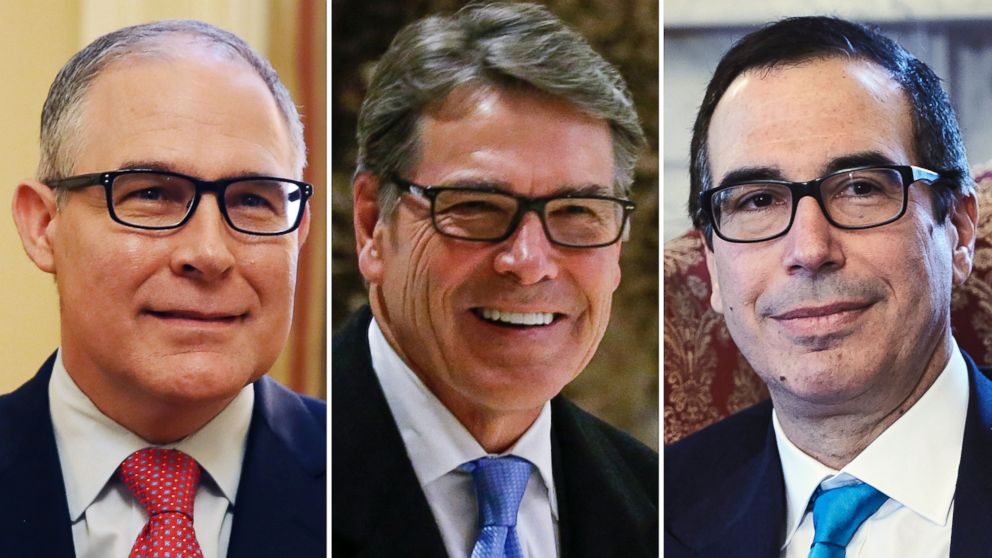Possible Flashpoints for This Week's Cabinet Confirmation Hearings
— -- The first week of Senate confirmation hearings for President-elect Donald Trump’s nominees for various positions led to several splits in terms of policy between the would-be department heads and their boss.
Eight more Cabinet-level nominees are slated to have their hearings in the final days leading up to the inauguration on Friday.
Here are six potential flashpoints that could cause verbal fireworks inside the Capitol this week.
Betsy DeVos, Secretary of Education
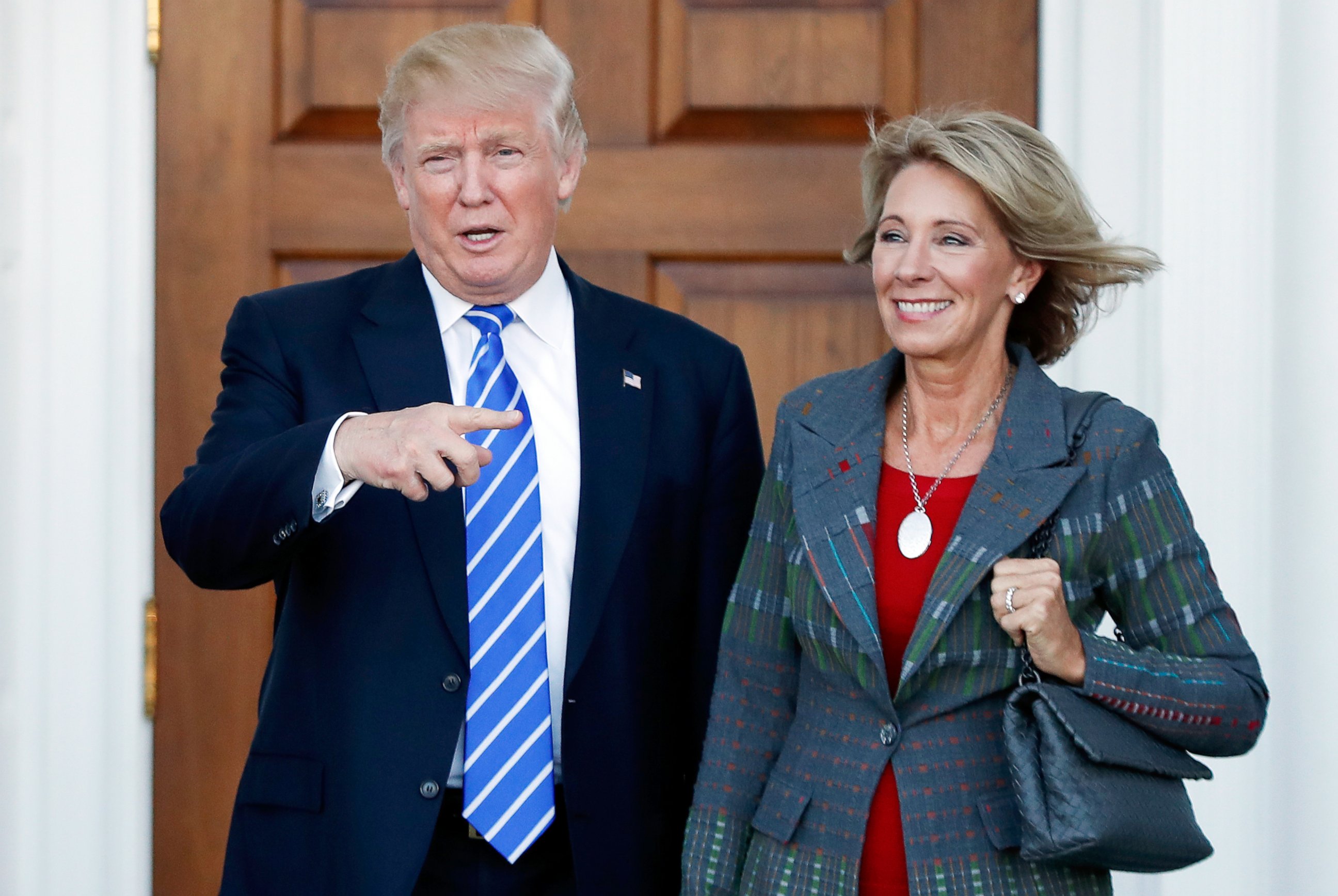
When it comes to the confirmation of Trump's education secretary pick, the controversies will likely stem directly from policy positions.
Betsy DeVos has been an outspoken supporter of school choice and charter schools, which some education activists oppose.
There have been a number of open letters written to DeVos since her nomination was announced, one of which was penned by a group of public school teachers who took issue with the fact that DeVos has not attended or sent her children to public schools nor worked as an educator at any point in her career.
Scott Pruitt, Head of the Environmental Protection Agency
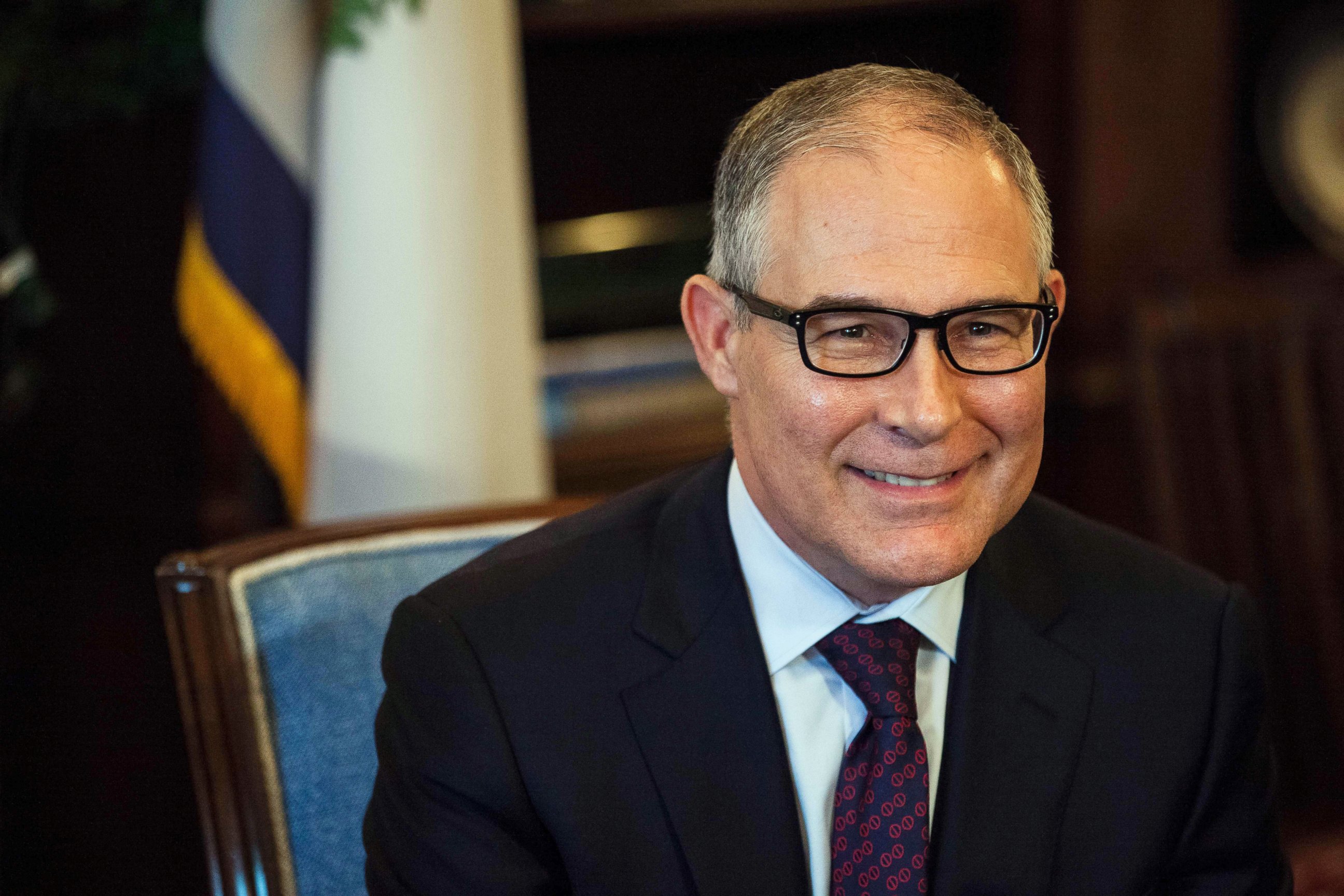
Environmentalists have raised concerns over the nomination of Scott Pruitt to be the head of the EPA for a number of reasons, including his past involvements with the agency, his ties to the oil and gas industry, his support of the Keystone XL Pipeline and questions he has raised about global warming in general.
Pruitt, the Republican attorney general for Oklahoma since 2011, has interacted most directly with the EPA by suing it over what he sees as overreaching federal regulations.
Some scientists have also questioned his fitness to run the environmental agency considering he has publicly stated that he believes the debate over the cause of global warming is “far from settled.”
His nomination to now lead the agency is akin to putting "someone in charge of the Defense Department who doesn't believe we should have a military or someone in charge of the Transportation Department who doesn't like roads," said Dan Kanninen, a former White House liaison at the EPA.
Wilbur Ross, Secretary of Commerce
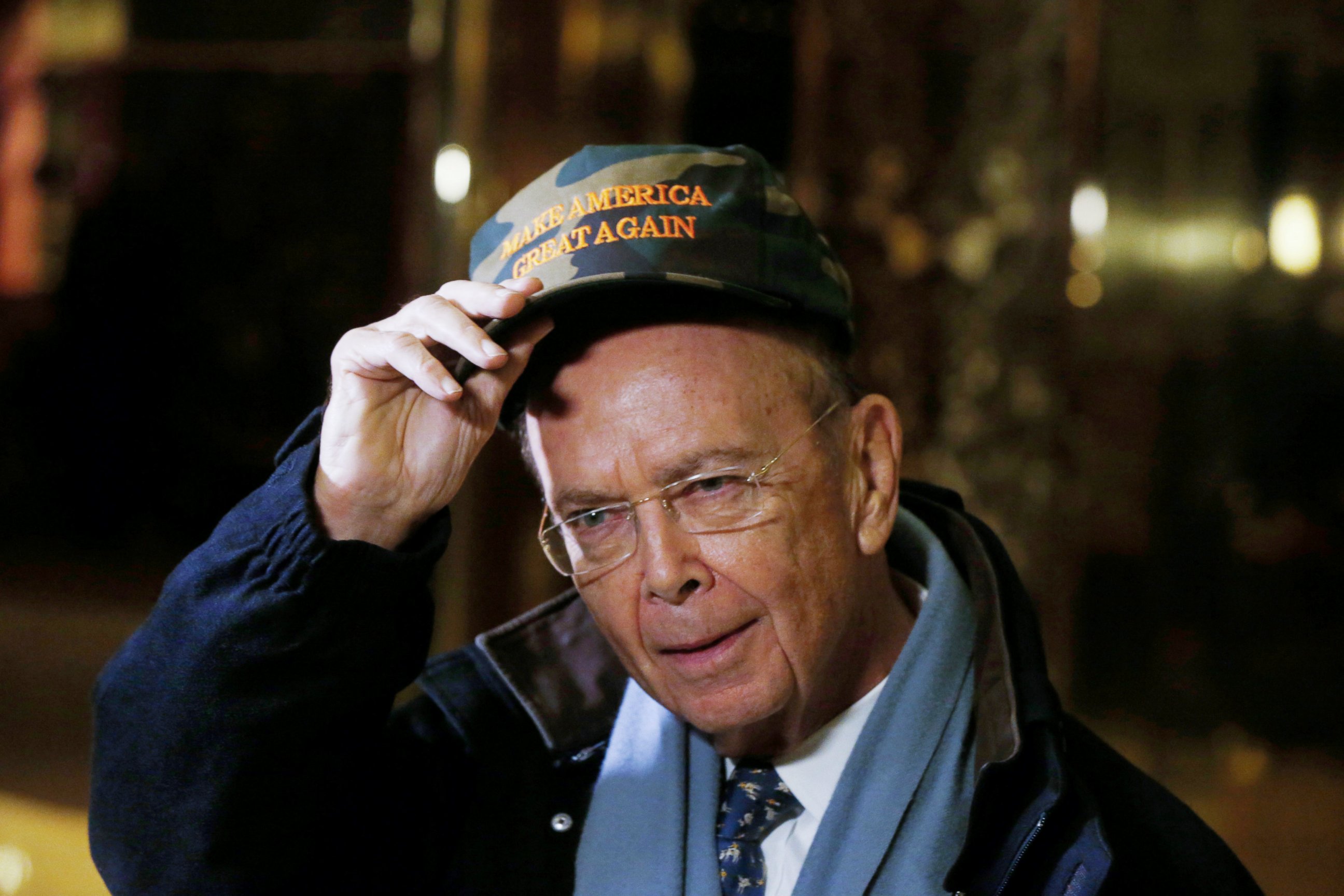
The wealth of Trump's Cabinet picks is clearest with the nomination of Wilbur Ross, a billionaire investor.
Aside from Trump himself, Ross is the only Cabinet pick who is listed as part of the Forbes 400, the magazine's 2016 edition of its list of the wealthiest Americans. Ross is worth an estimated $2.5 billion.
Ross has been hailed as a hero by some for saving failing industries but critics have likened the business practice to being a "vulture investor," though Ross himself disdains the term, according to a 2004 New York magazine profile, which also noted that he prefers the description “a phoenix that rebuilds itself from the ashes.”
Rep. Tom Price, Secretary of Health and Humans Services
The fight over the fate of Obamacare has already started, but that’s likely going to be at the forefront of the hearing for Tom Price, an outspoken critic of the Affordable Care Act.
Price, the chairman of the House Budget Committee and an orthopedic surgeon, is one of the few Republicans in Congress to have proposed a detailed conservative alternative to Obamacare.
Price introduced the Empowering Patients First Act to the 113th Congress (which spanned 2013 to 2014). It's described on his website as “legislation that fully repeals Obamacare and starts over with patient-centered solutions.” The bill is almost 250 pages long.
As health and human services secretary, Price would play a major role in any repeal or replacement of Obamacare and in any changes to Medicare, which he supports privatizing.
Former Gov. Rick Perry, Energy Secretary
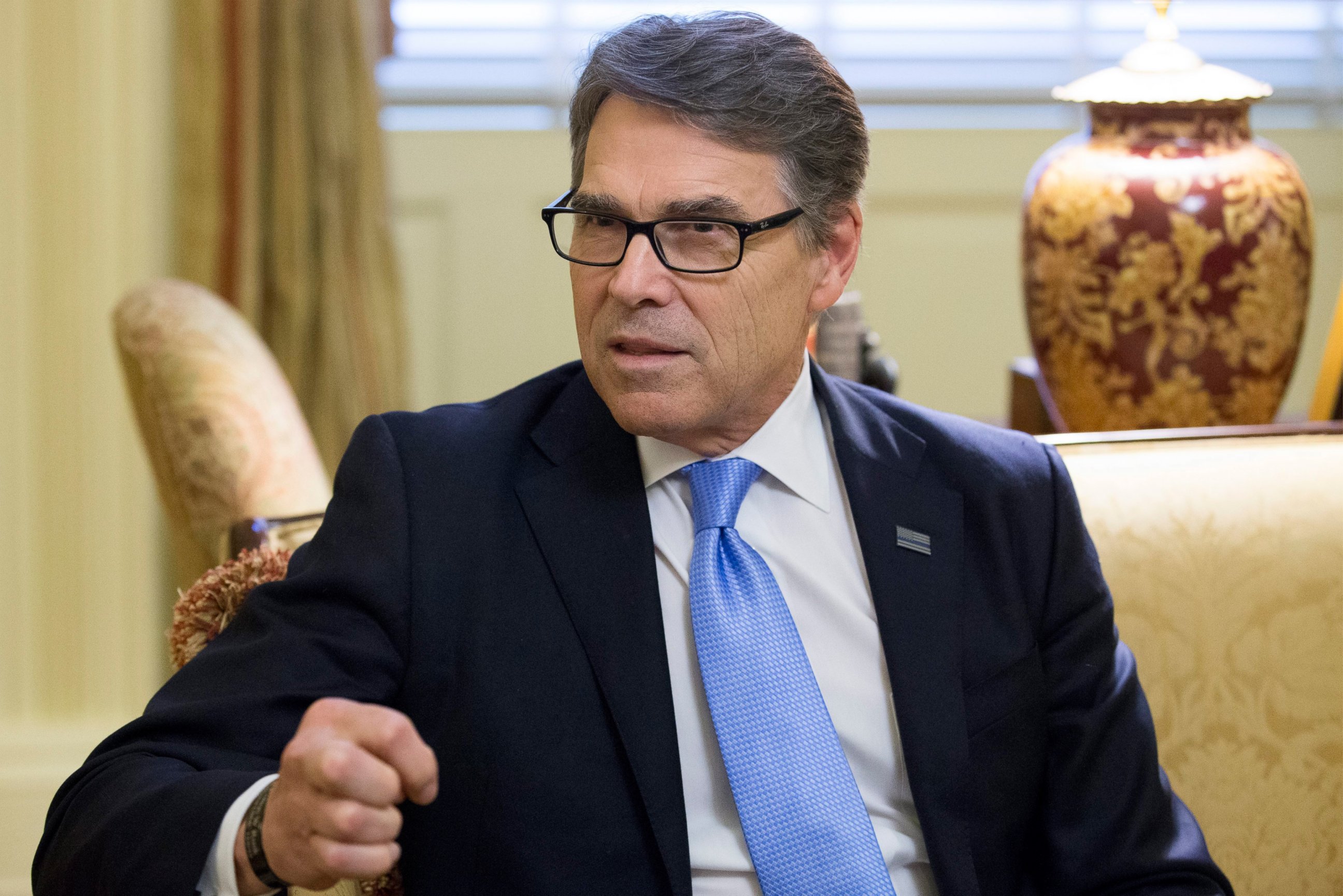
Aside from the fact that Rick Perry is always going to be remembered for forgetting the Department of Energy years before he was called to not only not dismantle the department but to lead it, the former Texas governor's ties to energy companies will be in question as potential conflicts of interest.
One of the clearest possible conflicts comes from his place on the board of directors of Energy Transfer Partners, the company behind the disputed Dakota Access Pipeline.
Steven Mnuchin, Treasury Secretary
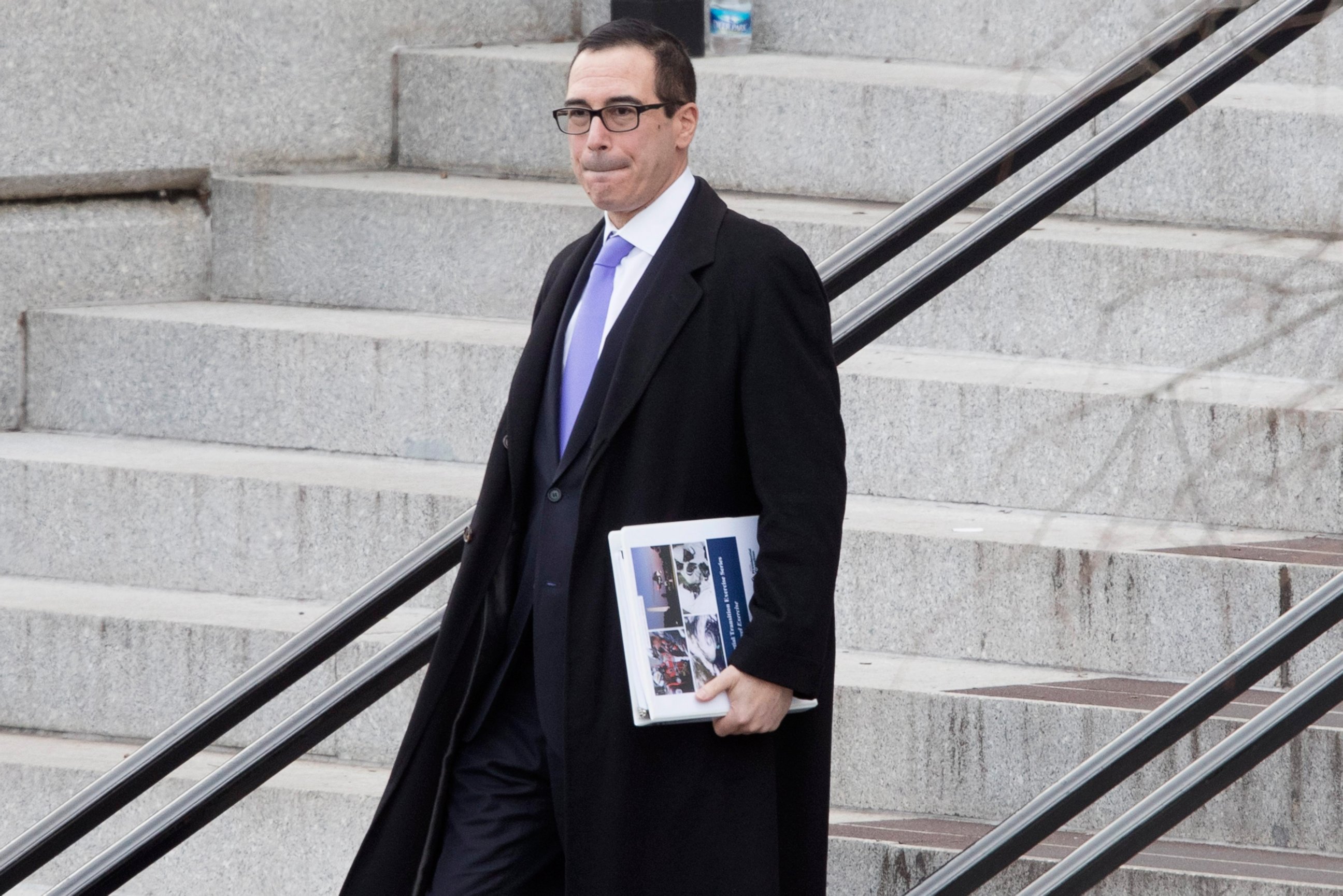
Steven Mnuchin, who worked at Goldman Sachs for 17 years before going on to found his own investment firm, is going to be scrutinized for his previous work in the financial sector and his possible conflicts of interest.
Mnuchin led a group of investors who bought the failed IndyMac bank, rebranding it as OneWest Bank and eventually selling it last year to CIT Group for approximately $3.4 billion.
His time with OneWest is going to be a major point of contention as Senate Democrats have been asking Americans to share their stories about "his bank's practice of buying distressed mortgages during the financial crisis and evicting thousands of homeowners," according to their website.
The Associated Press reports that Mnuchin has a disclosed net worth of $166 million and he is set to sell 43 assets to avoid conflicts of interest as Treasury secretary, according to filings with the Office of Government Ethics.
ABC News' Alana Abramson contributed to this report.
